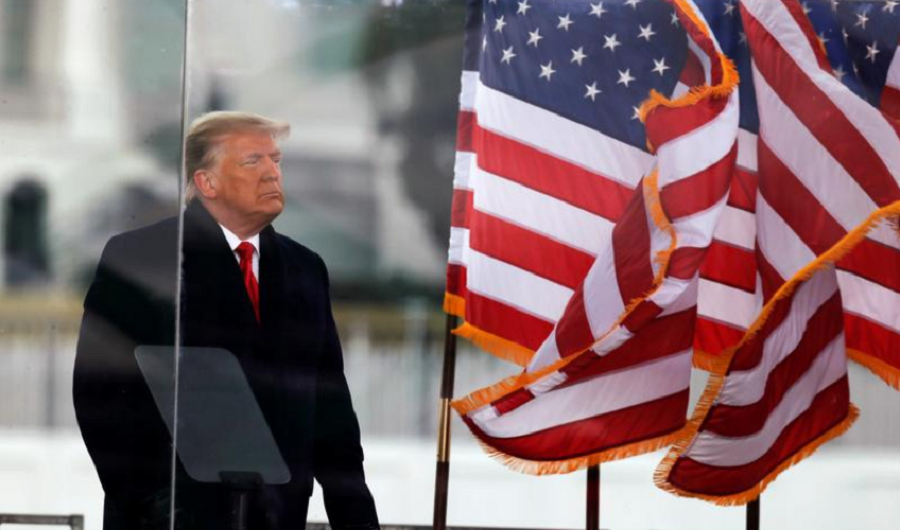Trump has discussed pardoning himself, source says

U.S. President Donald Trump looks on at the end of his speech during a rally to contest the certification of the 2020 U.S. presidential election results by the U.S. Congress, in Washington, U.S, January 6, 2021. /Reuters
Kathmandu, 2021 January 8, Friday
(CGTN)
U.S. President Donald Trump has discussed the possibility of pardoning himself in recent weeks, a source familiar with the situation said on Thursday.
Such a pardon would be an extraordinary use of presidential power by Trump, who lost the November 3 election to Joe Biden and will leave office on January 20.
The White House declined comment.
The New York Times earlier reported that Trump had said he was considering pardoning himself in discussions with aides since the November election, citing two unidentified people with knowledge of the conversations.
“In several conversations since Election Day, Trump has told advisers that he is considering giving himself a pardon and, in other instances, asked whether he should and what the effect would be on him legally and politically, according to the two people,” the Times reported.
Trump has already issued a series of pardons to political allies and friends. He also said in a 2018 Twitter post: “I have the absolute right to PARDON myself.”
Trump faces state legal actions that would not be covered by a federal pardon. They include a criminal probe by Manhattan District Attorney Cyrus Vance and a civil probe by New York state Attorney General Letitia James into whether he inflated asset values to obtain loans and tax benefits in his business dealings.
Constitutional lawyers say there is not a definitive answer on whether a president can lawfully issue a self-pardon. No president has tried it before, so the courts have not weighed in.
“When people ask me if a president can pardon himself, my answer is always, ‘Well, he can try,'” Brian Kalt, a constitutional law professor at Michigan State University, earlier told Reuters. “The Constitution does not provide a clear answer on this.”
Some legal experts have said a self-pardon would be unconstitutional because it violates the principle that nobody should be the judge in his or her own case.










